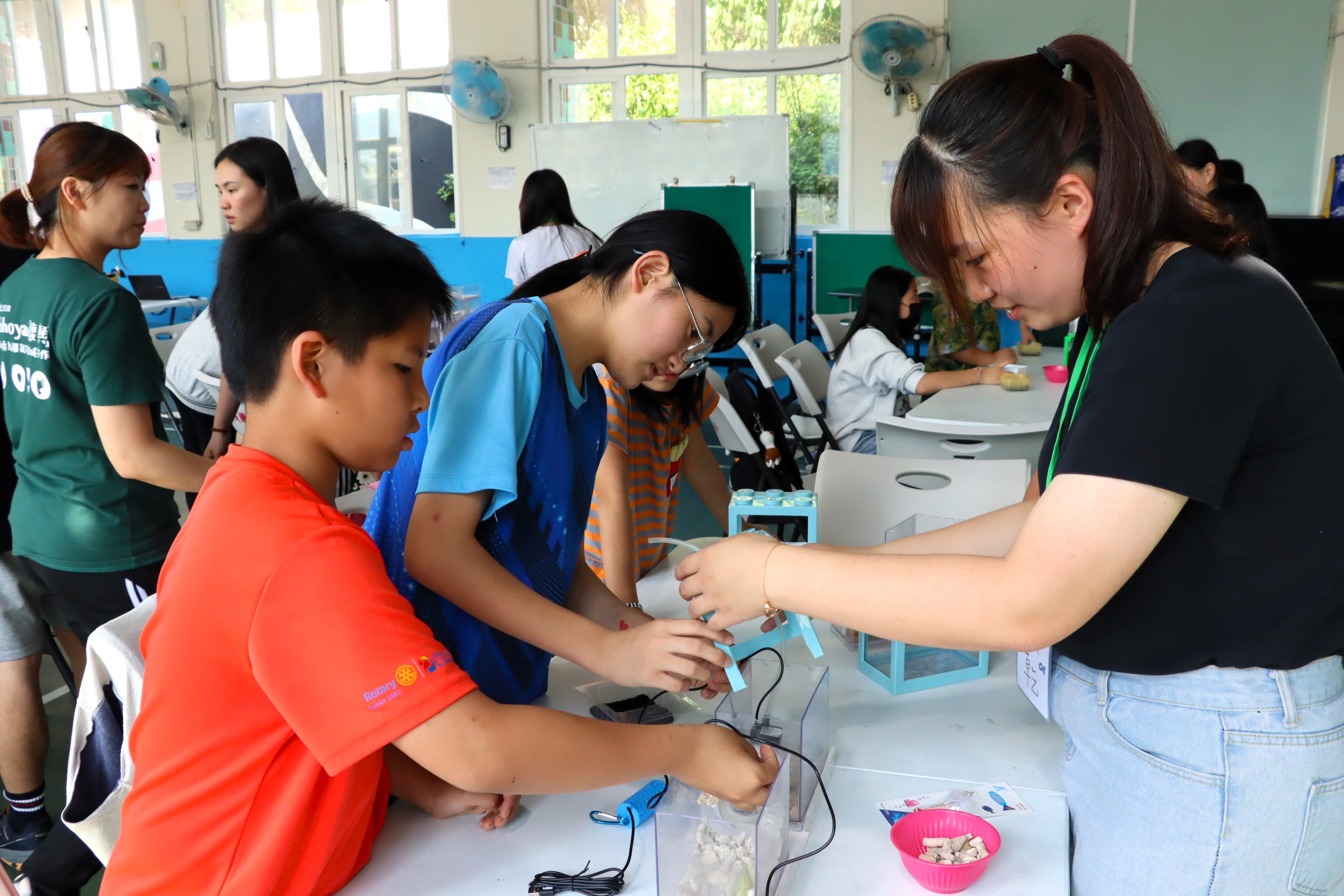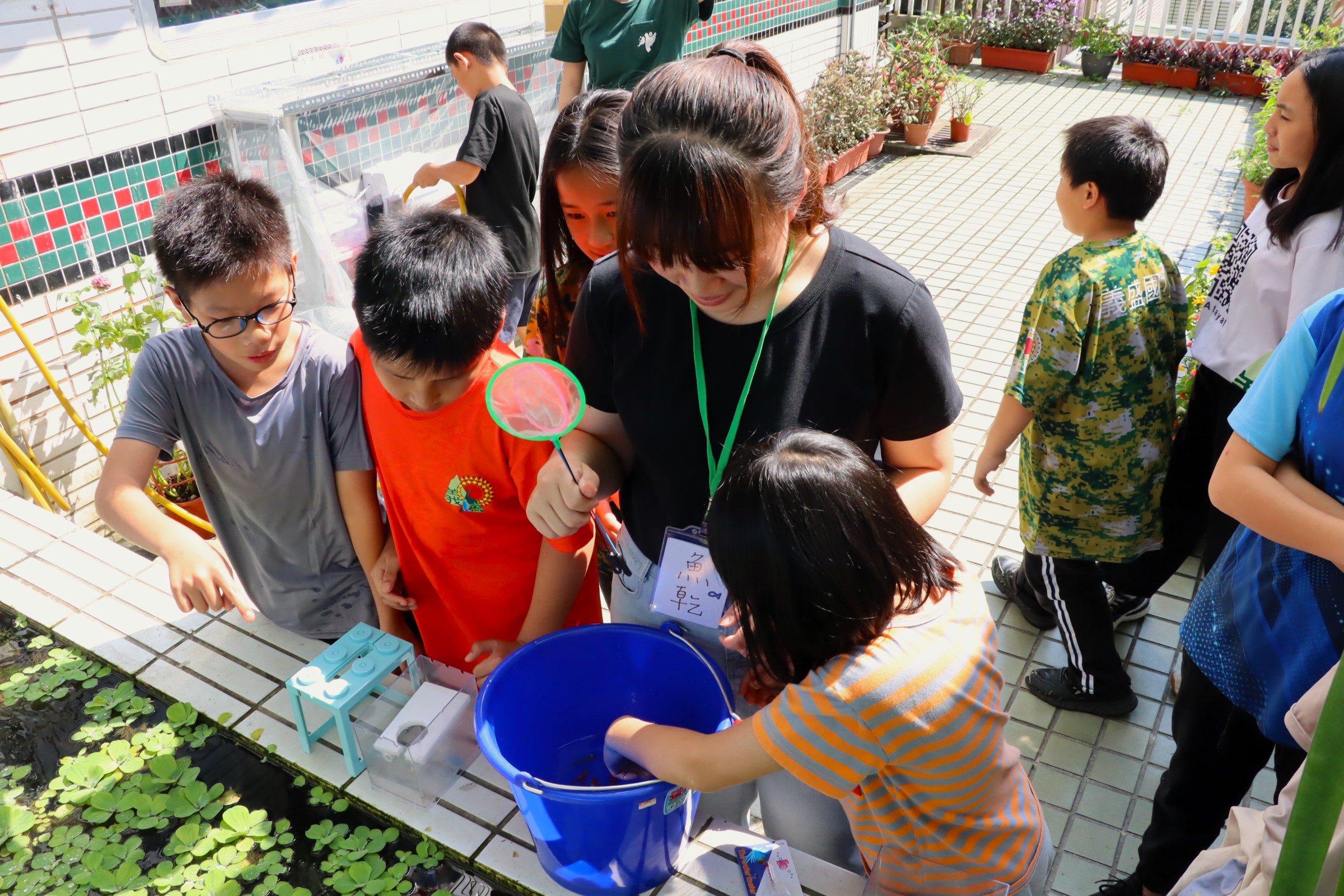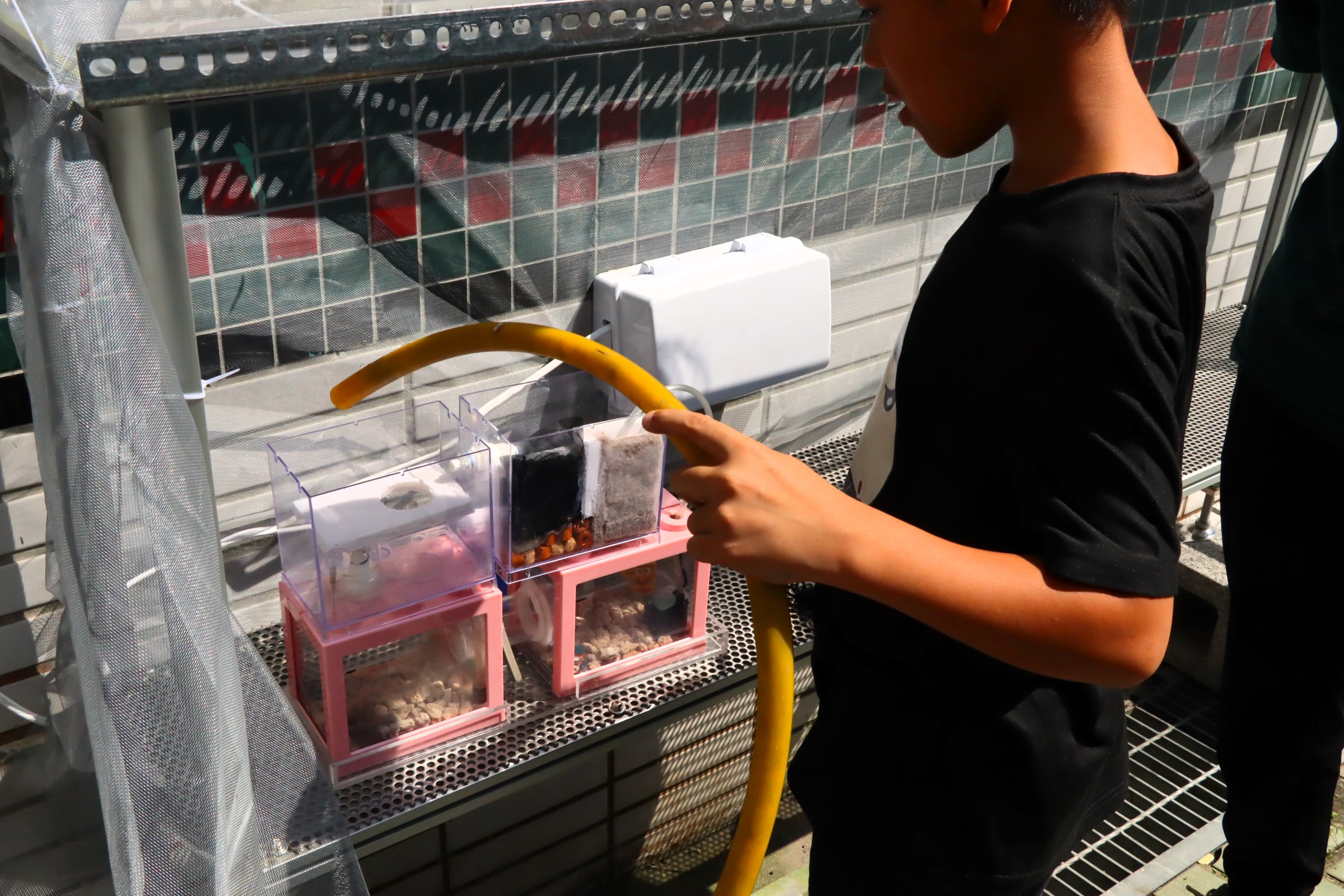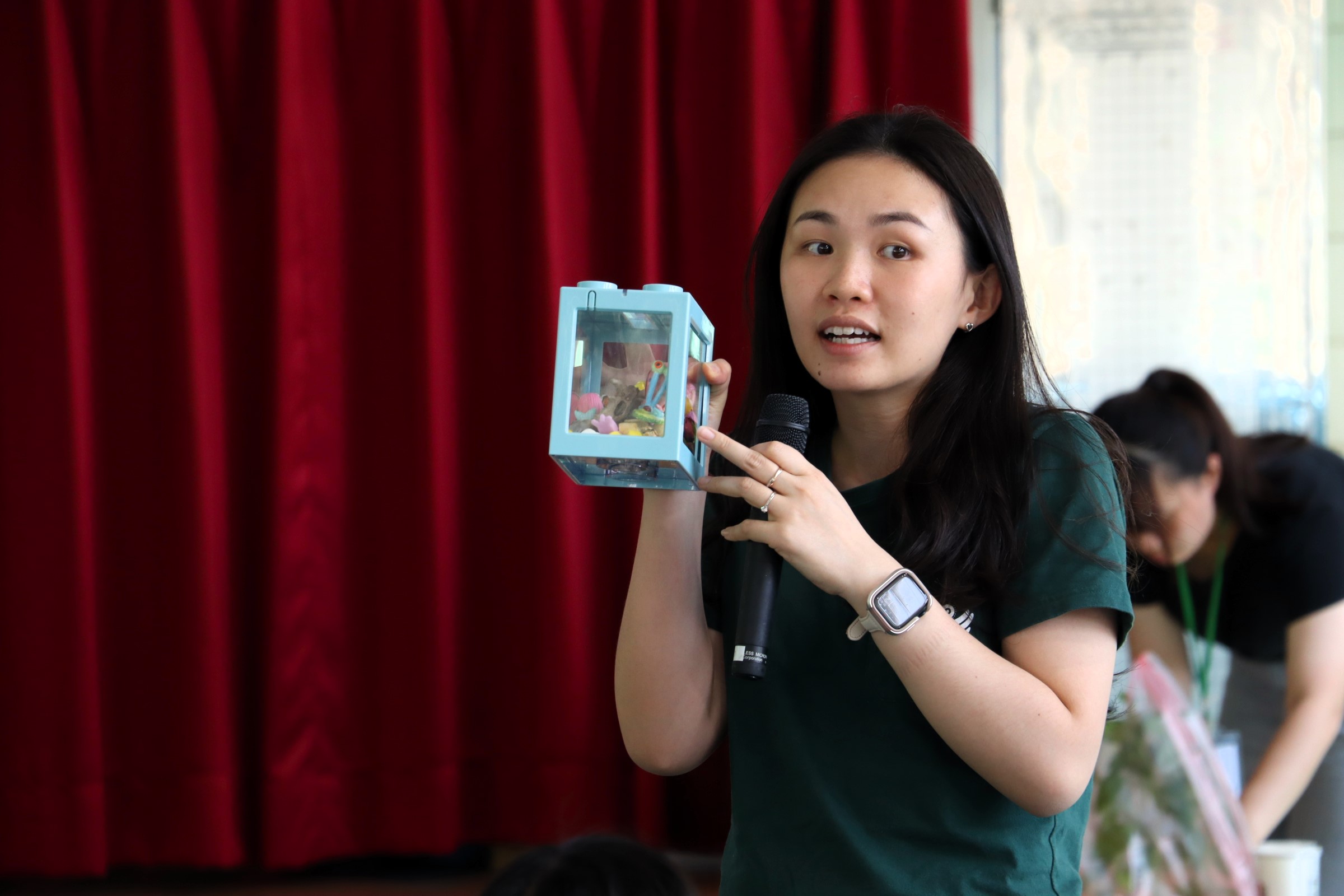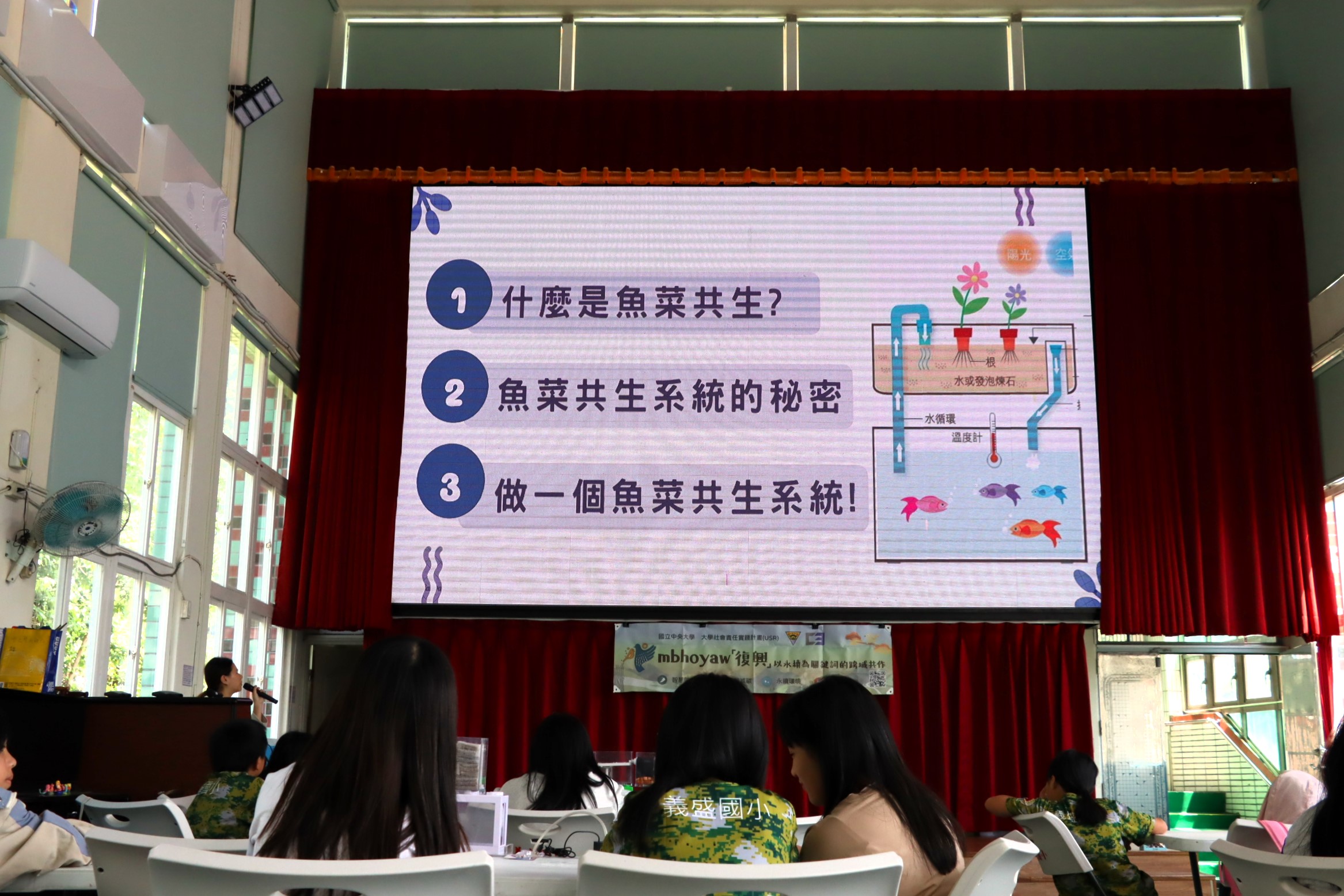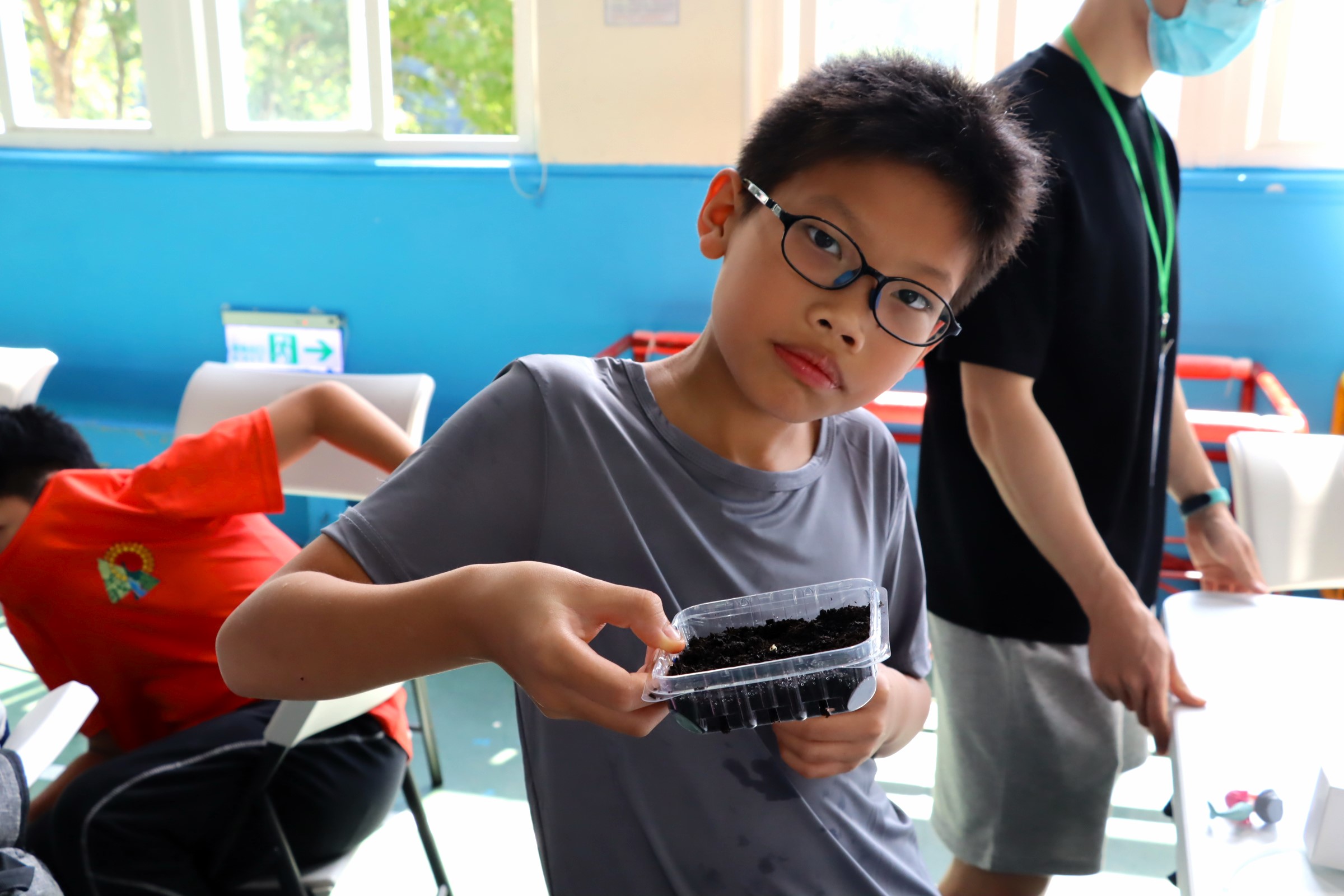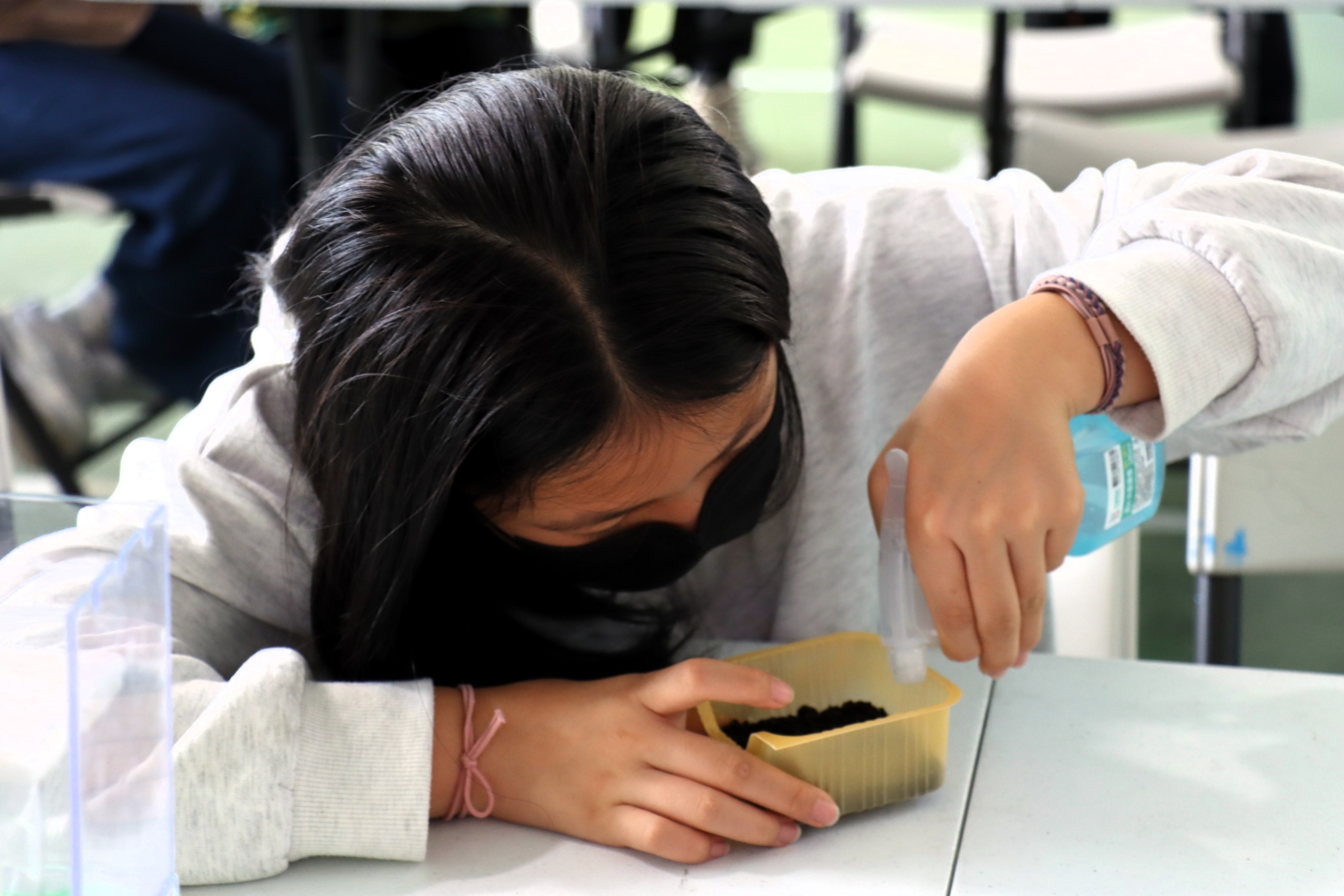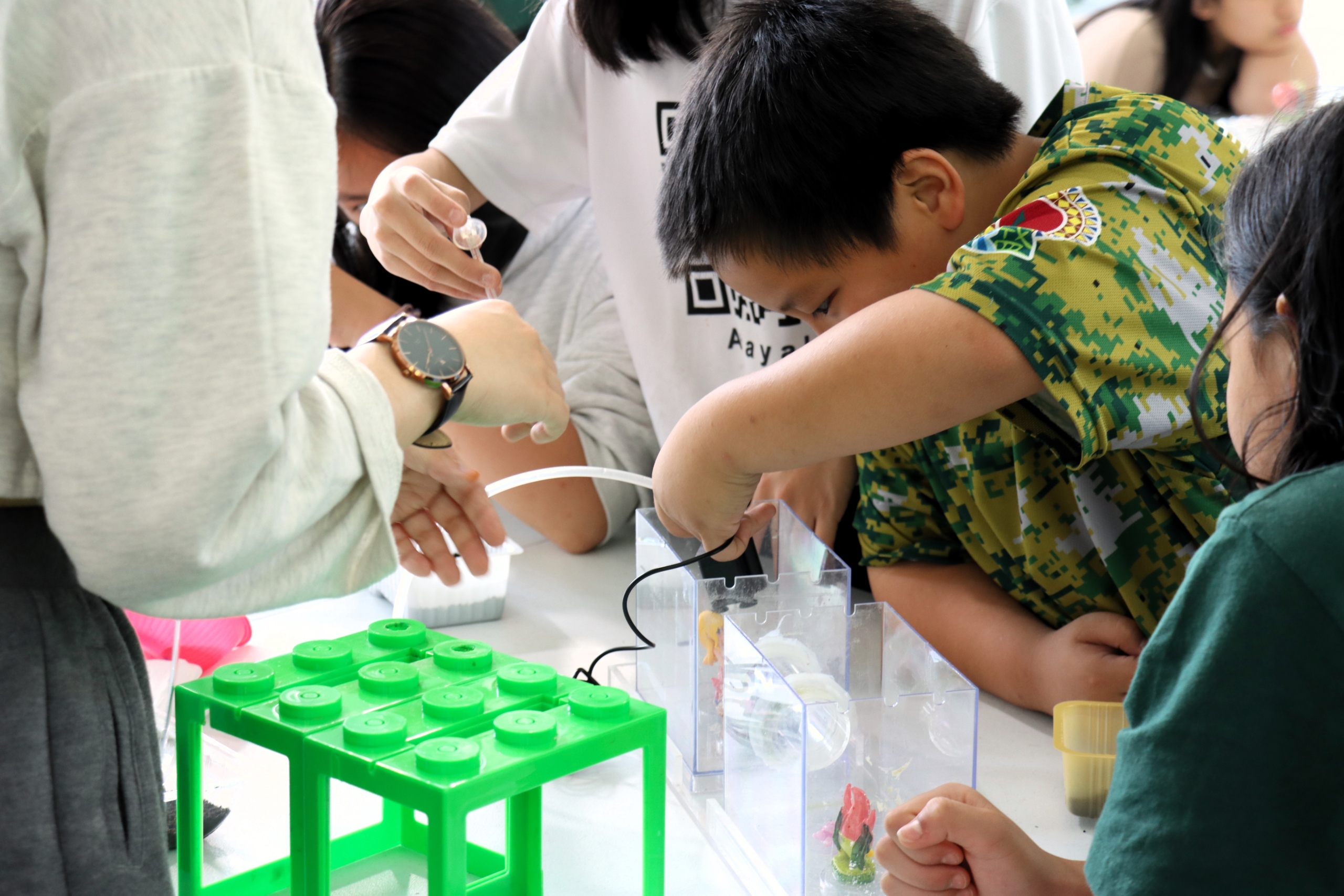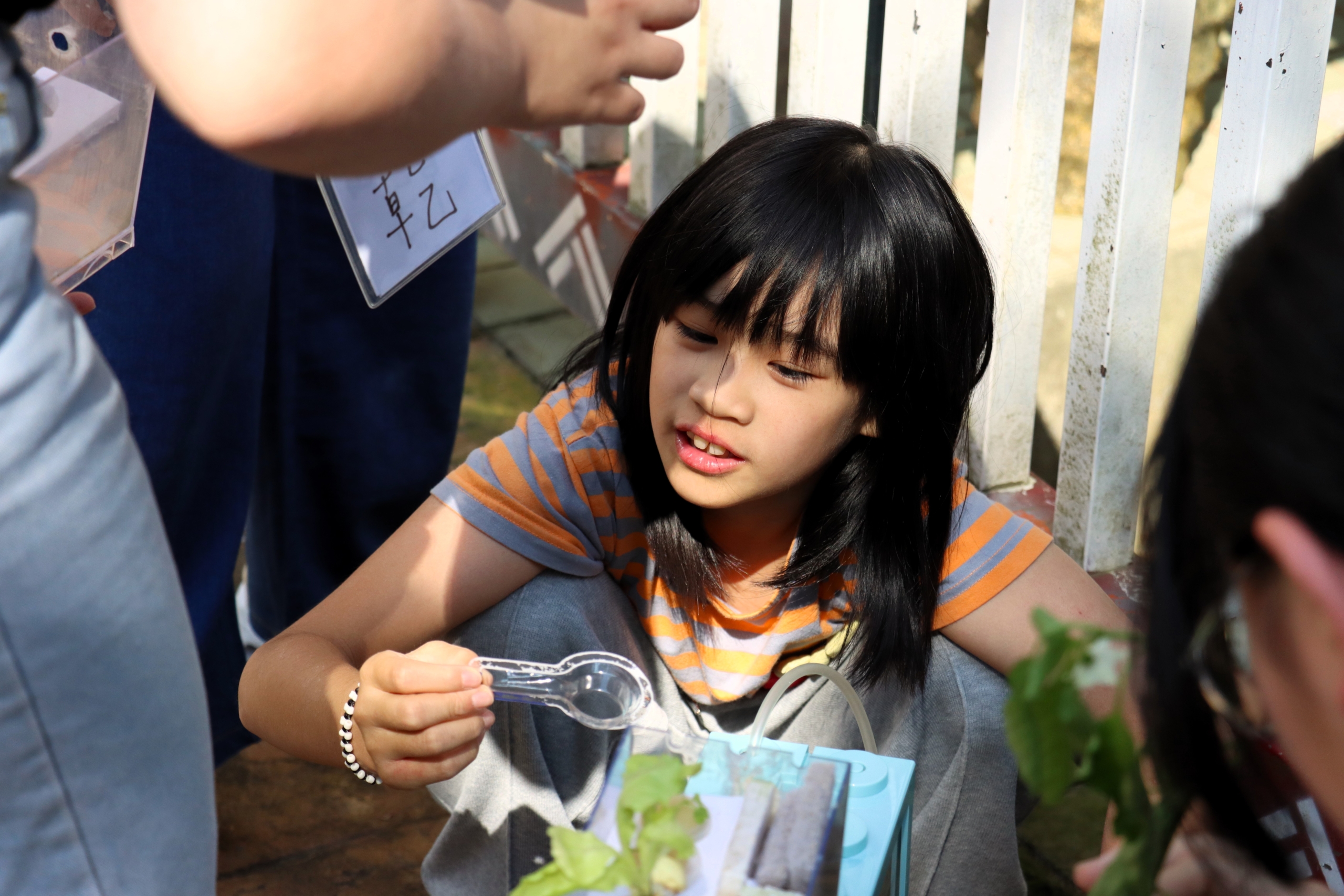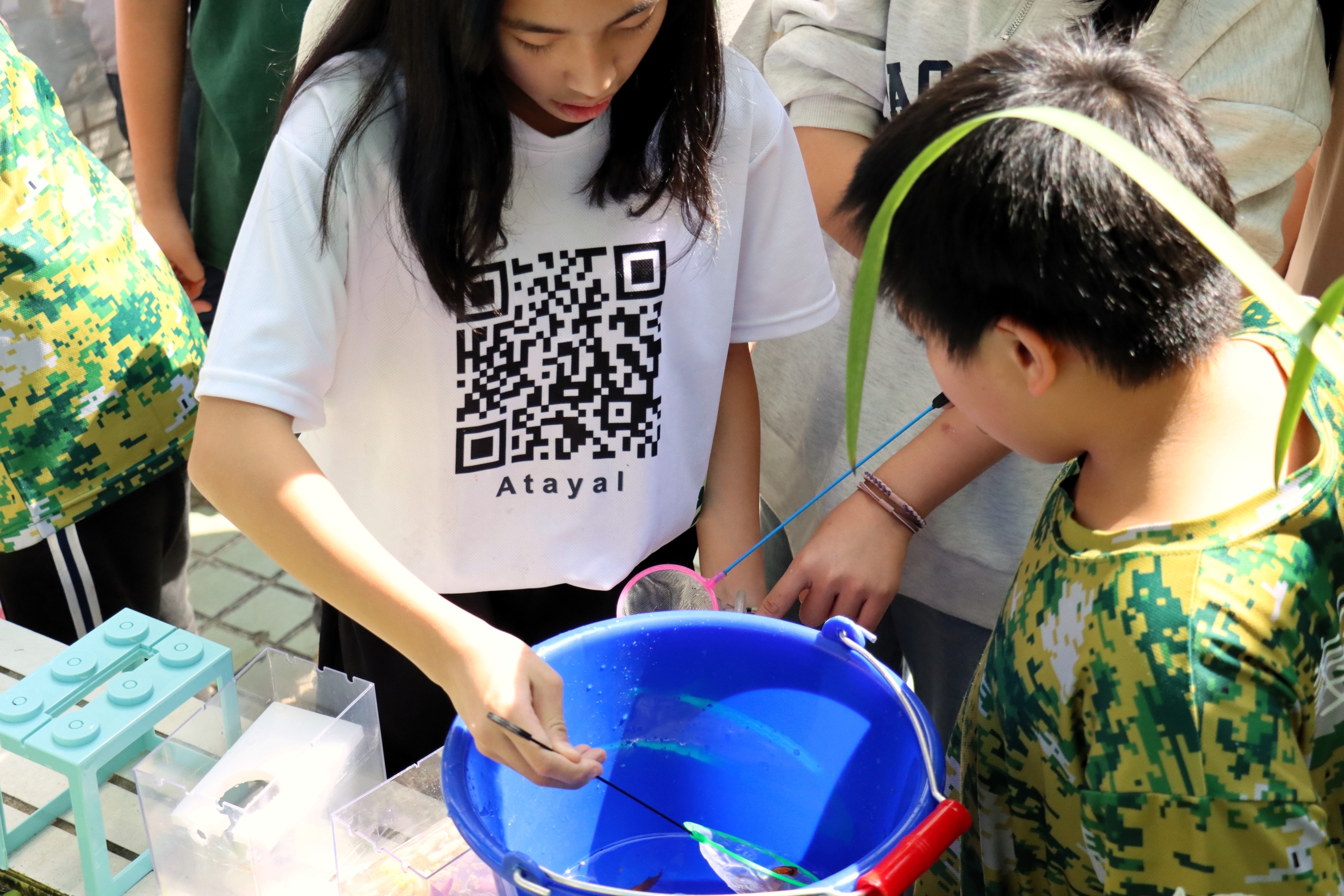Today, we arrived at Yisheng Elementary School, nestled in the mountains, to conduct an aquaponics education course. This is a small school with few classrooms, where the children seem to have no age barriers and interact closely with peers of all ages. Living in a forest filled with phytoncides, issues of air quality might seem distant to them. However, during this activity, many children unexpectedly showed great enthusiasm for the topic.
The course began with a simple introduction to the principles and structure of the aquaponics system. Although the children were slightly unfamiliar with the concept, they remained eager to learn and actively participated during the quiz section. I particularly liked the circular diagram in the presentation, as it clearly explained the operation of the entire aquaponics cycle and helped the children understand the role of each component through simple images.
After the lecture, it was time for the part the children enjoyed the most—hands-on practice. Before officially assembling the aquaponics system, NCU students designed a small activity for the children, allowing them to plant chili or lettuce seeds in prepared recycled plastic containers, encouraging them to take the seeds home and nurture them, hoping they would see them sprout. Then, we moved on to the assembly of the system, where groups of four children worked together with their older peers to build their own aquaponics systems. The assembly wasn’t difficult, as most of the equipment had been pre-assembled; the children just needed to know the function of each item and its correct placement before piecing everything together.
Once the assembly was completed, we reached the most important step: placing the fish and plants into the system. Thanks to the efforts of the children, the aquaponics system was successfully completed, and they personally placed it on the prepared shelf. I quickly grabbed my camera to capture the moment of their bright, sunny smiles after completing the task, silently applauding their hard work and patience.
The activity came to a close as we gathered for a group photo with the aquaponics system. Today’s sunshine was especially bright, and the children’s smiles shone just as brightly in the photos. I was grateful for the good weather and for successfully completing another activity. I look forward to the next visit to see the aquaponics system functioning well, with the plants thriving in the sunlight and the fish remaining healthy and vibrant.
Text by Tsai Nian-Zhen
Edited by Li Ruo-Jia
Photos by Tsai Nian-Zhen
Today, I joined the team at Yisheng Elementary School for the aquaponics course. Perhaps because the student teacher was new and not very familiar with the children, or because the course operations were a bit challenging, the children appeared somewhat reserved. However, I could feel the topic’s appeal to them, and their focus and participation were quite commendable. I believe that by the end of the course, both the children and the student teachers would feel a sense of achievement.
After the course, we had a brief chat with the director of Yisheng Elementary School. From the director’s demeanor and words, I could clearly sense his desire to expose these children to the workings of the world, allowing them to pursue their interests without being limited by family circumstances. Growing up in a rural elementary school myself, I strongly resonated with and understood the director’s thoughts and actions. In rural areas, families often do not support our education and may require us to help take care of younger siblings or assist with chores in the fields, mountains, or beaches. In such circumstances, it’s difficult for students to have enough time to complete homework and practice, unlike their urban counterparts. I was fortunate that although my family didn’t fully support my education, they also didn’t hinder it. Their philosophy was that as long as I wanted to study and had the ability to do so, I should pursue it. Additionally, the teachers I encountered during my educational journey provided me with much help and resources, enabling me to attend National Central University. However, during my conversation with the director, I realized that even if students are motivated to study, they are still affected by family constraints. Therefore, the director believes it is crucial to bring the outside world into the mountains, giving children the chance to see it, so that at least some will be curious or interested enough to venture out.
After sharing my experiences with the director, I suddenly felt fortunate. Although I currently feel lost and unsure of my path, I know I have a group of supportive teachers guiding me. The director asked, “So, what is the reason behind your support to study at NCU?” At that moment, I couldn’t provide an answer, but now I think it might be because of those selfless teachers that I have reached this point. Finally, the director reminded me, “While you have the ability to venture out, remember to look back at your hometown and see what you can do for the younger students there.” I don’t know how much impact this statement will have on me, but I know he has planted a seed in my heart. Perhaps 30 years from now, I will indeed be able to do something for my hometown.
Text by Su Wei-Tzu
Edited by Li Ruo-Jia
Photos by Su Wei-Tzu

